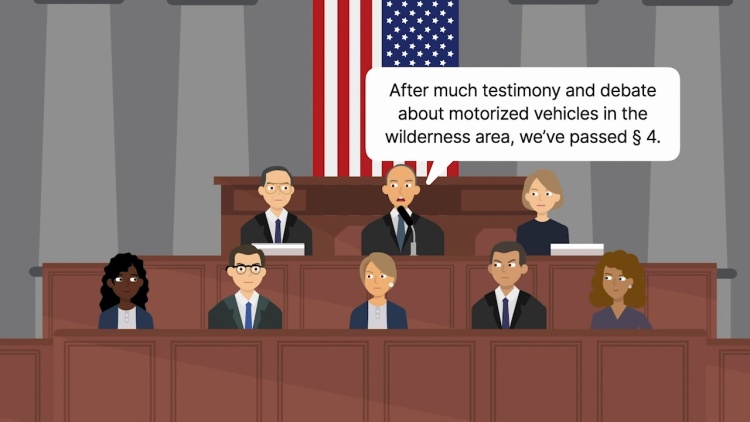Minnesota v. Block
United States Court of Appeals for the Eighth Circuit
660 F.2d 1240 (1981), cert. denied, 455 U.S. 1007 (1982)
- Written by Melanie Moultry, JD
Facts
Congress passed the Boundary Waters Canoe Area Wilderness Act of 1978 (the act) to preserve the Boundary Waters Canoe Area Wilderness (BWCAW). The BWCAW encompassed 1,075,000 acres of land and water along the Minnesota-Canadian border. The federal government owned nearly 90 percent of the land. The State of Minnesota owned approximately 121,000 acres of land, in addition to the beds underneath 160,000 acres of navigable waters. Section 4 of the act restricted the use of motorboats and snowmobiles to designated areas within the BWCAW. The restriction applied to the land and waters owned by Minnesota. Congress enacted § 4 following extensive testimony and debate regarding the interference of motorized vehicles with the BWCAW’s use by canoeists, hikers, and skiers. The State of Minnesota; the National Association of Property Owners; and numerous individuals, businesses, and organizations (plaintiffs) sued the federal government (defendant), on the basis that Congress had exceeded its authority under the Property Clause of the United States Constitution by restricting the use of motorized vehicles on nonfederal land. The United States Court of Appeals for the Eighth Circuit heard appeals from three consolidated cases that challenged the act.
Rule of Law
Issue
Holding and Reasoning (Bright, J.)
What to do next…
Here's why 907,000 law students have relied on our case briefs:
- Written by law professors and practitioners, not other law students. 47,100 briefs, keyed to 996 casebooks. Top-notch customer support.
- The right amount of information, includes the facts, issues, rule of law, holding and reasoning, and any concurrences and dissents.
- Access in your classes, works on your mobile and tablet. Massive library of related video lessons and high quality multiple-choice questions.
- Easy to use, uniform format for every case brief. Written in plain English, not in legalese. Our briefs summarize and simplify; they don’t just repeat the court’s language.





